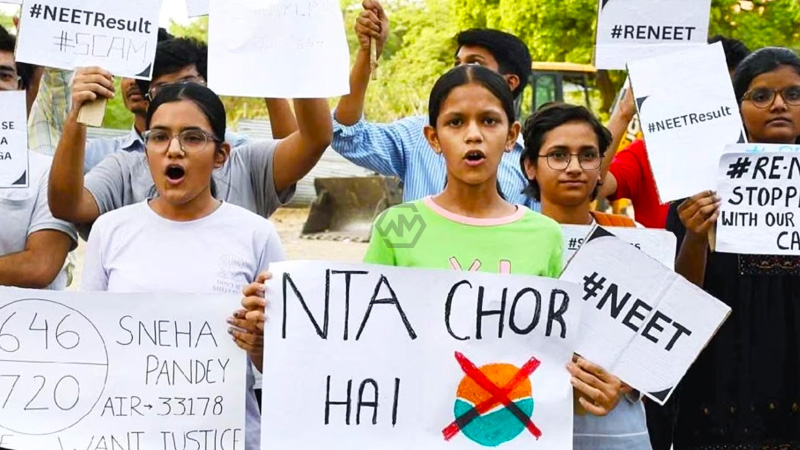- The new “Public Examinations (Prevention of Unfair Means) Act, 2024″ aims to curb cheating in national exams.
- Defines stringent penalties including up to 10 years in jail and ₹1 crore fine.
- Covers major exams like UPSC, NTA, and SSC to ensure transparency and credibility.
In a significant move aimed at safeguarding the integrity of national examinations, India has introduced the “Public Examinations (Prevention of Unfair Means) Act, 2024.” This legislation marks a robust step forward in combating cheating and malpractices in public exams conducted by entities like the Union Public Service Commission (UPSC) and the National Testing Agency (NTA).
The Act defines clear prohibitions against premature disclosure of exam information and unauthorized entry into exam centers, bolstered by severe penalties such as a maximum of 10 years imprisonment and fines reaching ₹1 crore.
Exam Integrity Strengthened: India’s New Legislation and Its Impact
Designed to clamp down on malpractices during national exams, the Act encompasses assessments conducted by prominent bodies such as the Staff Selection Commission (SSC) and Railway Recruitment Board (RRB). It mandates strict penalties for breaches, including hefty fines and substantial prison terms, aimed at dissuading any attempts to compromise the sanctity of these examinations.
With its passage through both houses of Parliament earlier this year, the Act reflects a concerted effort to foster greater transparency and accountability in India’s examination ecosystem. By categorizing offenses as cognizable, non-bailable, and non-compoundable, the legislation seeks to deter potential wrongdoers and uphold the merit-based principles integral to public examinations. This legislative framework is poised to bolster public trust in the fairness of exams critical for national recruitment and academic admissions.
This legislative measure received bipartisan approval during the recent parliamentary sessions, emphasizing its critical role in promoting fairness and transparency across recruitment and entrance exams. Its implementation underscores the government’s commitment to upholding the credibility of examinations critical for educational and career opportunities nationwide.
“Transparency in examination processes is essential for fostering trust and fairness in our education system.”
– Ministry of Education spokesperson



